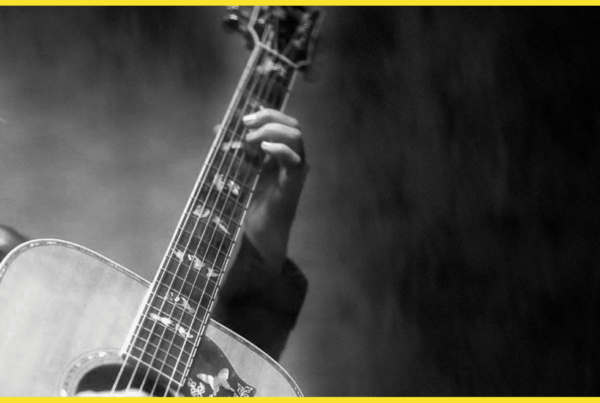There I was sitting on the banks of a river on a fine October day rereading the unforgettable and ever inspiring essay of Virginia Woolf, A Room of One’s Own. What better setting than a river to let the mind flow and follow the cadence of her written thoughts?
Rivers can be a wonderful source of inspiration. With their hypnotic power, forever passing yet forever seemingly still, they soothe the mind and allow it to travel to far away places. This moving, this swaying, this formidable sense of all things being transient and impermanent and yet aspiring to be forever perfect, untouched and unscathed by the passing of time, has drama mixed with beauty in it.
But this article is not about rivers. It is about how an essay published in 1929 inspired me to write a song a century later. It is about how an incredible writer, thinker, and critic like Virginia Woolf touched women of generations to come and invited them to step out of the dark and speak their truth with their voice. My tribute to her and to the many women who came before us is through this song written on a fine October day: “1929 – A Woman With A Soul“.
I always wanted to find a way to keep the voices of the past alive, especially the voices of our mothers, our grandmothers, our great grandmothers who went through hardships we cannot even begin to imagine. And yet they managed to find the courage (at times out of despair) to “take those shadows and tear them from the wall”. They fought for the rights we have today. They did that through actions and words, through mobilisation and artistic creation. We must always remember that words have a transformative power and they must be used with caution and intent. Artists and writers long to put a mirror in front of our eyes and show us a world of magic, and beauty, but also of drama and tragedy. Nothing escapes the attentive observer, no ideologies can sugar coat the reality in front of us. And for sure Virginia Woolf was beyond sugar coating. Her pen was piercing and fierce. Her voice poignant and unapologetic.
A Room of One’s Own was written at a time when women were starting to have their voices heard, and could even vote in England. This was a time when there were women writers affirming themselves, a time when even Virginia Woolf thought there was no excuse for women to stay ignorant and not write. “How can I further encourage you to go about the business of life?” She wrote. “Young women, I would say, you are in my opinion, disgracefully ignorant…. What is your excuse?”
Yet it was also a time when womanhood was still considered an occupation, a job to do and in many parts of the world it is still the case. Luckily though the words of John Langdon Davies in A Short History of Women are far from being prophetic: “when children cease to be altogether desirable, women cease to be altogether necessary”. I hope you will make a note of it, Virginia Woolf added to her lecture in 1928 which was the prelude to the published essay.
I wonder how the students at Newnham College and Girton College, women’s colleges at the University of Cambridge, reacted when they were indirectly called ignorant and incited to go about the business of life ? When she encouraged them to rise above their womanhood and embrace life beyond gender? How did they feel when they were told to have a voice of one’s own dictated by the depths of living and not by the depths of whining or sitting in a living room knitting and conversing on superficial things. A voice that rises from the ashes of hardships and humiliation; a voice dignified by the meaning and strength of its content and tone, a voice that stands on its own against the storm of criticisms or the soft and soothing yet superficial winds of praise.
What voices do we hear today? Are there any voices that stand out and say something relevant about the topic of women? There is a lot of noise and it is tiring. Representation is important but it has to be for the right reasons. If it is to push political, institutional and corporate agendas, and show what a diversely represented world we live in, then we missed the point, for women continue to be objects of attention rather than subjects of action. I wonder what Virginia Woolf would say now about the topic of women and gender?
I think she would be intolerant on the one hand at the whining and complaining of privileged women but she would also smile when it comes to gender for she encouraged both men and women to think and write with an androgynous mind; to go beyond the differences that the biological sex imposes; to free the spirit to its creative source, to be brave enough to lose oneself in thought and let ideas come and go until perhaps a nugget of truth emerges and from that truth a work of genius is born.
Make no mistake. Still today in many parts of the world, women are confined to a world they cannot escape, for they do not know that a different world is possible. The only world they know is the one they are shown, the only one they can be a part of, which is a world that closes libraries, covers faces, punishes gender and creates lies. It is in these places that the voices need to be heard to break the silence and show that other worlds are possible.
The freedom of the mind to write and speak, requires the freedom to think first and the possibility to tap into its thoughts letting some go and capturing others in words. This then needs the courage of the spirit to share that writing with a world that has not asked for beauty, nor art, nor poetry, nor music. A world whose existence is well established without our human presence, a world whose laws of nature scorn at our fragility, our mortality, our need of meaning. That which for us is of primordial importance, the world ignores and plods on relentlessly like the relentless flow of a river.
And yet, like rivers we also flow, unstoppable, for such is our nature.



